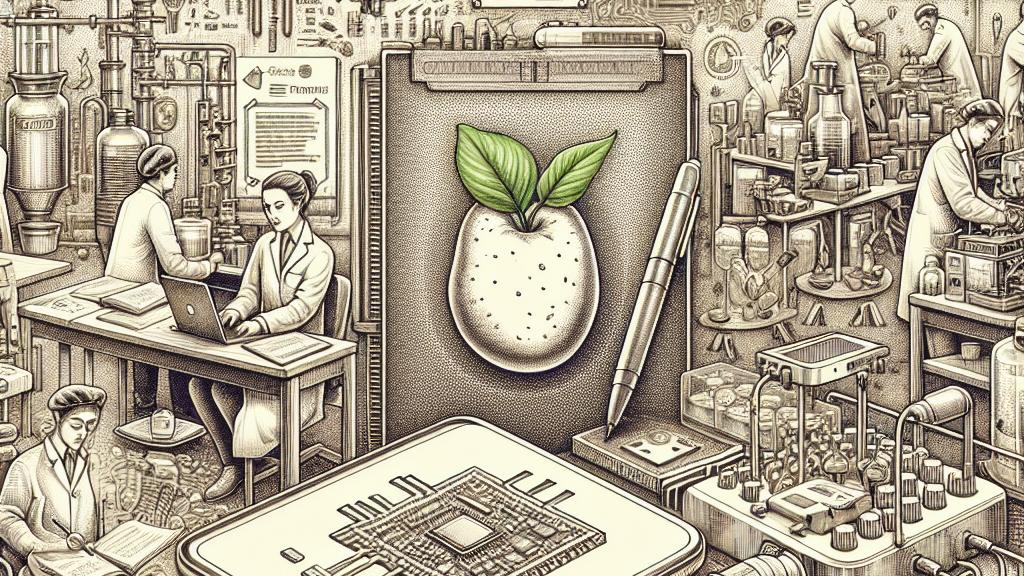Advancements in Starch Nanocomposite Films for Eco-Friendly Electronics
Overview
- Breakthrough biodegradable films developed at Queen Mary University of London harness renewable starch and conductive MXene.
- These innovative materials not only reduce reliance on petroleum but also pave the way for sustainable electronics solutions.
- Offer vast potential across multiple industries, aiming to combat e-waste while promoting a healthier planet.

A Breakthrough in Green Electronics
In a groundbreaking achievement from the UK, researchers at Queen Mary University of London have introduced extraordinary starch nanocomposite films. These pioneering materials combine starch—an abundant and renewable polymer sourced from plants like potatoes, maize, and corn—with MXene, a cutting-edge, conductive two-dimensional material. This collaboration doesn't just produce biodegradable and flexible electronic components; it also addresses the colossal challenge of electronic waste. Just imagine a world where technology and sustainability coexist harmoniously—a future that this innovative research is actively working to create.
Sustainable Features and Customization
What truly distinguishes these films is their remarkable ability to biodegrade completely within just one month in soil—an impressive feat compared to conventional plastics, which can linger for centuries. By skillfully manipulating the concentration of MXene, the researchers have achieved the ability to customize the films' mechanical durability and electrical conductivity, tailoring them to specific applications. For example, these materials could be used in health devices for monitoring bodily movements or in the development of smart textiles that react to touch. Such versatility not only fosters high-performance applications but also reaffirms our commitment to environmental protection, showcasing a unique union of technology and ecology.
Towards a Circular Economy
The implications of this research extend far beyond the lab, marking a significant stride toward establishing a circular economy within the electronics industry. By adopting these eco-friendly starch-based composites, manufacturers can dramatically decrease their dependence on harmful, non-biodegradable materials. Lead researcher Ming Dong highlights that shifting to sustainable practices is not merely a choice anymore; it is an imperative for the well-being of our planet. Each step taken towards the use of biodegradable materials contributes to a vision where electronic devices not only function effectively but also enhance our environmental stewardship. Together, we can move toward a future where innovation meets responsibility, fostering a world that values both technology and nature.

Loading...